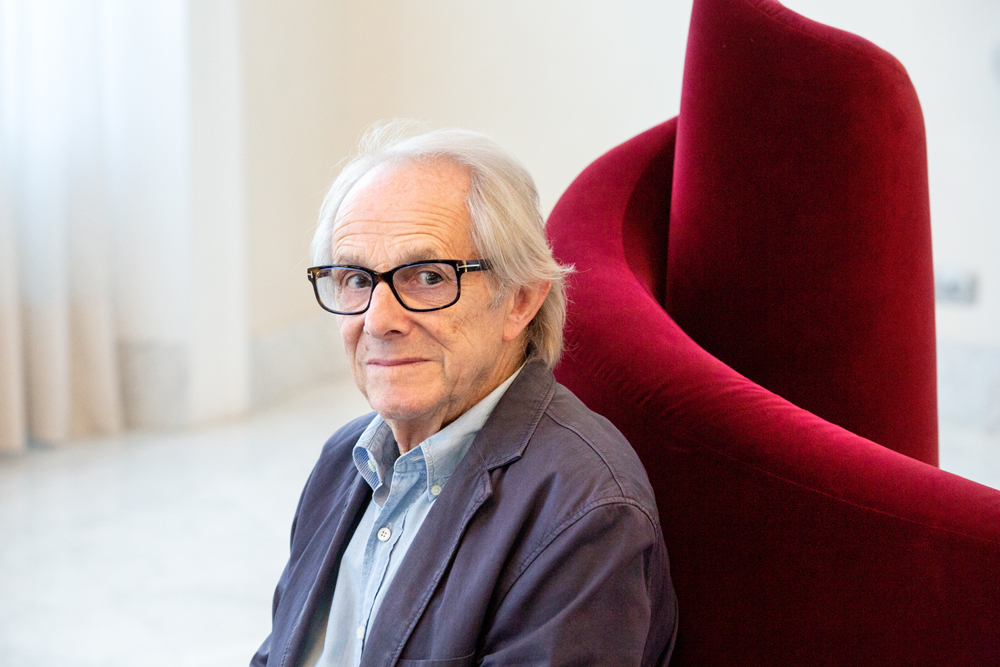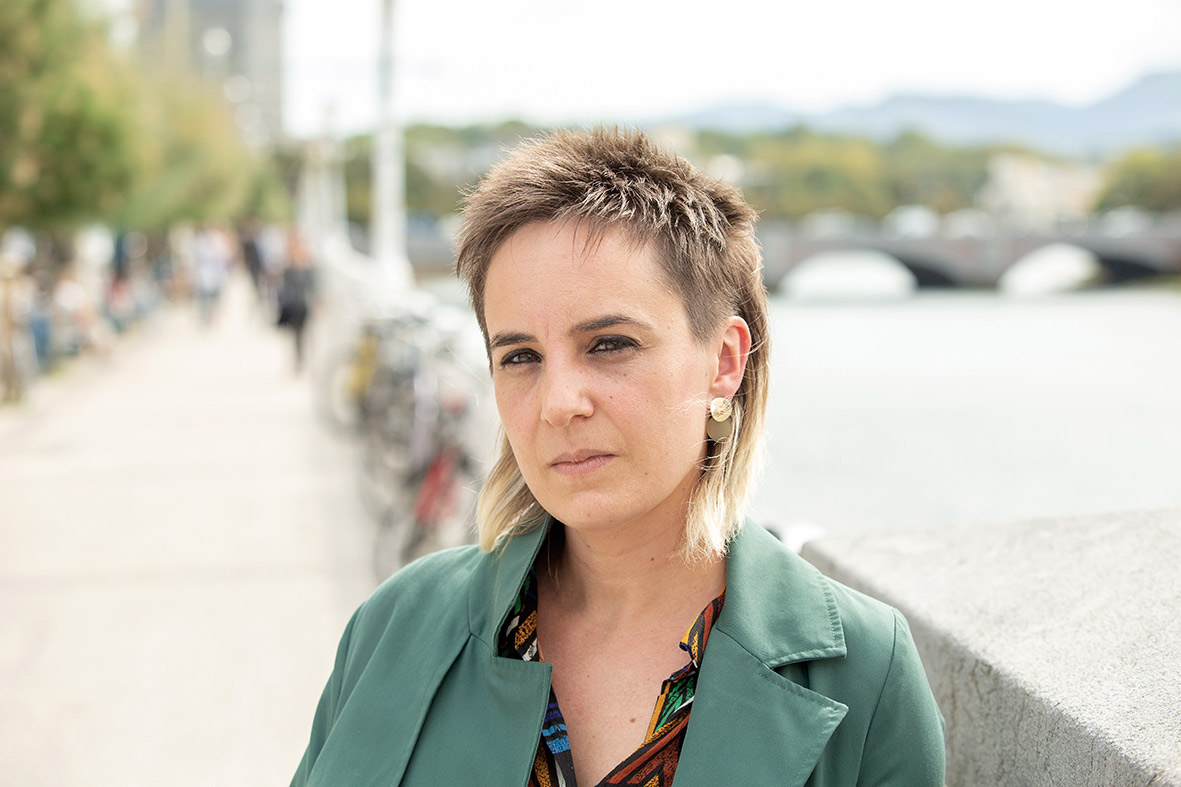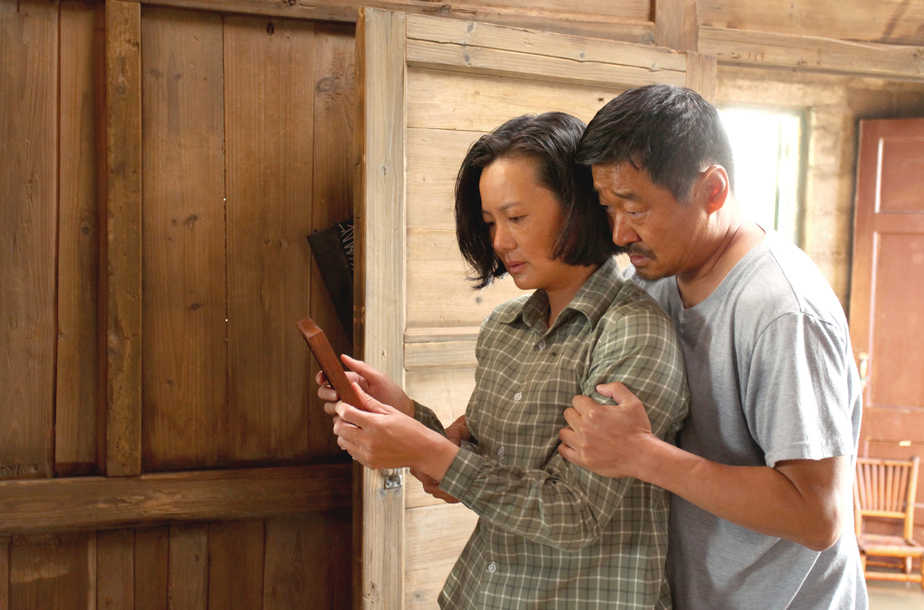When he takes the knot
- It is the sixth day and the beginning of the final straight of the San Sebastian Festival. Something amazing happened this Wednesday: Do you know how before the movies you hear some notes of what looks like a jazz music, like the leit motiv of the festival? And if people applaud, to keep pace -- today, applause has started before the light went out in the room, and it's felt almost compelled to adapt the intruder of the film to the rhythm of the public. It seems that Mohammed has managed to move the mountain towards him.

The Cuban director, Armando Capó, has taken us to the coast leaving the mountain aside. The screening of the film August is about to end in September, although we would not say the same because of the temperatures that have been made during the week. The summer atmosphere of the film is more accessible than other films from the Festival that have adapted in winter; it is a matter of closeness. The director rebuilds the summer of 1994, when it comes to the balsera crisis. With the collapse of the Soviet Union and all the blockades it had on a global level, the Cuban economy fell in those years. In this context, people started making wooden rafts to try to capture the coast of Florida (United States). In Capó's film, a 14-year-old boy has just entered adolescence and is gradually discovering his body and his sexuality. Meanwhile, people around the world are starting to disappear. The film follows, therefore, two great threads: on the one hand, the first desire for love; on the other, the representation of a different life. Capó himself was no longer the protagonist at the time, and it seems that it is a job that owed him to what he had lived. It's not the first time at this festival everyone makes a fiction of their past, and I think it has a tint in which the director asks the audience to help him in this stain healing exercise. If the audience wants to start the movie actively.
Following political events, Jean-Gabriel Périot, winner of the Zabaltegi Tabakalera Prize, has presented the film Nos défaites, directed by Dani Álvarez. The Frenchman represents fragments of films from 68 to high school students, and he proposes that they reflect on it. The contrast is obvious, as at times when they follow political scripts they have absolute certainty in their words, while when Periot asks them about their own opinions they start to doubt. The device is good, because it puts at stake the mirror of society. We can be more responsible for our own opinion, but that does not detract from the fact that this subjectivity remains the reflection of what surrounds us. It is also interesting to put students half a century ago in relation to the beliefs of those who were students. The image does not match the text and this desynchronization is introduced through the eyes. The question is what all this leads to. The title itself can give us the key to speculation. The nostalgia for the lost struggles, although the argument of the misinformation of the new generations, will not lead to the return of the situation. The dynamics of questions and answers, with the director with the camera in hand, cannot be compared with the scripts of the films the students interpret. Although the idea can function as a film, it leaves the feeling of not having reached the public, falling too easily into accusation or morality.
The last of the day was the long O that burns, by Oliver laxe, who has been left without prize. Selected in the pearls section, he won the prize from the jury of the Un certain regard section of Cannes, and is also harvesting good opinions at the San Sebastian Film Festival. The argument is not complicated: Amador leaves jail after serving his sentence for causing a fire and returns to the village. There he will stay for a while at his mother's house. Another violent fire, however, will destroy the area and change its state. In this work, however, there are other issues that develop in an extreme way. The Laxe film talks about the situation of the peoples of Galicia, the migration of the population, the shock of the new and old generations of the countryside and tourism, and the attachment to a land that cannot be understood in the cities. The most amazing thing about the play is that, when the second fire comes in, without realizing it, we're completely stuck more than we think about history. In general, the film has a slow pace, reflects the everyday, does not count great events... until the fire covers everything. And that's where everyone perceives how they've generated their own affections with the environment. Laxe already makes the event announcing the synopsis surprise us and feel his pain. Another good image of the film being developed in Galicia. Goose.






















